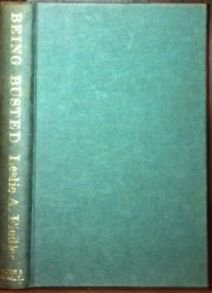
Being Busted PDF
Preview Being Busted
KIrkus, 1970;
This is an account of Fiedler's three brushes with authority and its backlash from 1933 on when as a youngster in Newark, N.J. he engaged in a radical protest, "the horseshit box on Bergen Street." A phrase cited to illustrate what Philip Rahv called Fiedler's stock in trade-his "epatisme." Something he of course shares with Mailer, as well as an unquestionably articulate striking power. And as well as a talent for reversing the old maxim-"Qui s'excuse, s'accuse" so in assuming the guilt of his own failures and limitations he immediately acquires a certain invulnerability.
His second difficulties occurred after his fairly long revolt against the president of Montana State University where he was teaching, which was followed by the backlash of "Jew Commie Go Home." But then he gets down to the more notorious nittygritty, the third episode, which was particularly featured in Time, the baseless (so he says and seems to prove) raid on his home and charge that the Fiedler menage was holding a pot party. This, prefaced by his activities at the University of Buffalo where he was Faculty Adviser for LEMAR (pro the legalization of marijuana), was also attended by weeks of secret surveillance, harassment, and the installation of a domestic spy in the person of a young freaked-out waif who also planted the package of marijuana which was found on the premises (and not smoked by any member of the family).
The radical aftereffects (the cancellation of his insurance and a teaching post abroad) all follow along with the legal follow-up of the case now up before the Supreme Court (privacy invasion). Fiedler, a much more subdued Fiedler, no longer the "street corner voice," but the victim of circumstances and the climate in which he lives, has a good deal to say about not only the academic communities in which he has figured but also the whole scene. No doubt about it he's made a statement.
